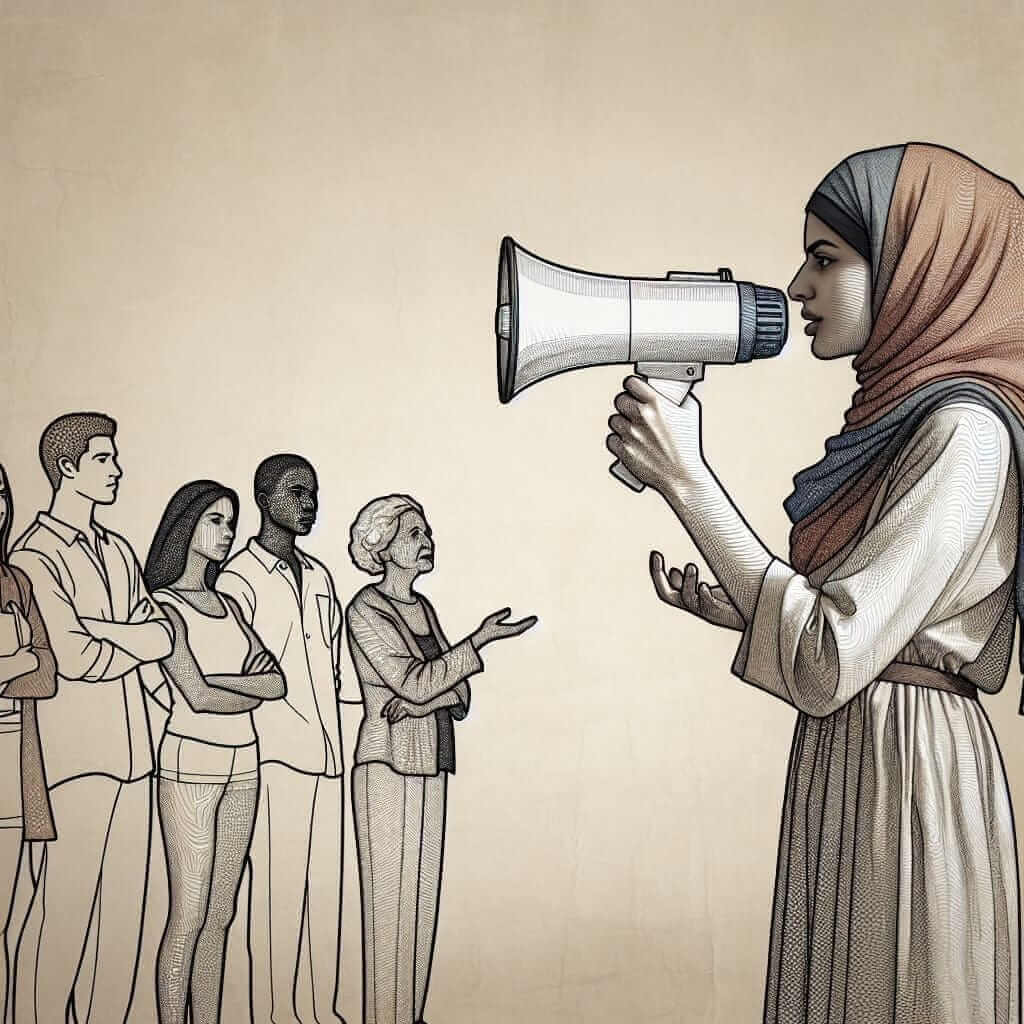The concept of free speech is often a focal point in IELTS Writing Task 2, appearing frequently in various forms within the exam. This topic delves into the significance of individuals’ rights to express themselves freely, particularly within the context of democratic societies. This essay will provide a sample answer discussing the merits and potential drawbacks of unfettered expression in such societies.
Here are some potential IELTS Writing Task 2 questions related to this topic:
- Some people believe that freedom of speech is a fundamental human right, while others argue that it should be restricted in certain circumstances. Discuss both views and give your own opinion.
- In the digital age, where information spreads rapidly online, it is more important than ever to have laws that regulate free speech. To what extent do you agree or disagree?
- The internet has provided a platform for individuals to express their views freely. However, some argue that this has led to an increase in hate speech and misinformation. What are the advantages and disadvantages of free speech in the online world?
Sample Essay: Discussing the Importance of Free Speech
To what extent do you agree that freedom of speech is a cornerstone of a democratic society, even when it allows the expression of offensive or controversial views?
Freedom of speech, a fundamental human right, is considered by many as the bedrock of a democratic society. It enables citizens to voice their opinions, scrutinize authority, and participate actively in shaping their governance. While this freedom is deemed paramount, the question arises as to whether it should be absolute, even when it paves the way for the expression of sentiments that are offensive or stir controversy. In this essay, I will delve into both perspectives before presenting my own viewpoint.
Advocates for unrestricted free speech argue that it is essential for a thriving democracy. They contend that any attempt to curtail free speech, even when dealing with disagreeable opinions, sets a dangerous precedent, potentially stifling dissent and paving the way for censorship. Open dialogue, even involving controversial ideas, is seen as crucial for progress. Through the free exchange of ideas, societies can challenge existing norms, expose injustices, and foster intellectual and social growth. Furthermore, proponents argue that individuals should have the right to express themselves without fear of retribution, as suppressing dissent can lead to the marginalization of certain groups and create an environment of fear and silence.
On the other hand, there are those who believe that freedom of speech should have limitations, particularly when it comes to expressions that incite hatred, discrimination, or violence. They argue that such expressions can have harmful consequences, creating a climate of intolerance and potentially leading to real-world harm. For instance, hate speech targeting specific religious or ethnic groups can contribute to discrimination and even violence against those communities. In such cases, it is argued that the potential harm caused by unrestricted free speech outweighs the benefits of unfettered expression.

In my opinion, while freedom of speech is fundamental to a democratic society, it should not be absolute. There is a crucial distinction between expressing unpopular opinions and spreading hate speech or inciting violence. A balance needs to be struck between protecting free speech and safeguarding individuals from harm. While open dialogue and debate, even on controversial issues, are essential for a healthy democracy, inciting hatred or violence towards others crosses a line and should not be tolerated.
In conclusion, freedom of speech is a fundamental pillar of a democratic society, allowing for open dialogue, scrutiny of authority, and citizen participation. However, it is not without its limitations. When expressions incite hatred, discrimination, or violence, they pose a threat to the very values that underpin a free and just society. Therefore, while upholding the importance of free speech, it is equally important to establish safeguards against its abuse and ensure that all members of society feel safe and respected. (Word count: 399)
Analysis and Key Takeaways
This essay effectively addresses both sides of the argument, providing clear reasoning and examples to support each perspective. Here’s a breakdown of the key features:
- Structure: The essay follows a clear structure, introducing the topic, presenting both sides of the argument, giving a personal opinion, and providing a concise conclusion.
- Vocabulary: The essay utilizes a range of vocabulary related to freedom of speech, democracy, and human rights.
- Grammar: The essay demonstrates good grammatical control, using a variety of sentence structures and complex grammar accurately.
- Coherence and Cohesion: The essay flows smoothly, using linking words and phrases to connect ideas and paragraphs effectively.
Vocabulary Highlights
- Bedrock (noun /ˈbed.rɑːk/): The fundamental principles on which something is based.
- Scrutinize (verb /ˈskruː.tə.naɪz/): To examine something very carefully.
- Paramount (adjective /ˈper.ə.maʊnt/): More important than anything else.
- Stifle (verb /ˈstaɪ.fəl/): To prevent something from happening or developing.
- Dissent (noun /dɪˈsent/): Disagreement with or opposition to an opinion.
- Incite (verb /ɪnˈsaɪt/): To encourage or stir up violent or unlawful behavior.
- Intolerance (noun /ɪnˈtɑː.lɚ.əns/): Unwillingness to accept views, beliefs, or behavior that differ from one’s own.
- Underpin (verb /ˌʌn.dɚˈpɪn/): To support or strengthen something.
Conclusion
Mastering the art of writing about complex topics like freedom of speech is crucial for IELTS success. Remember to practice structuring your essays clearly, use a range of vocabulary, and demonstrate your grammatical proficiency. Explore related themes like censorship, the role of the media, and the impact of technology on free speech to broaden your understanding and excel in your IELTS exam.